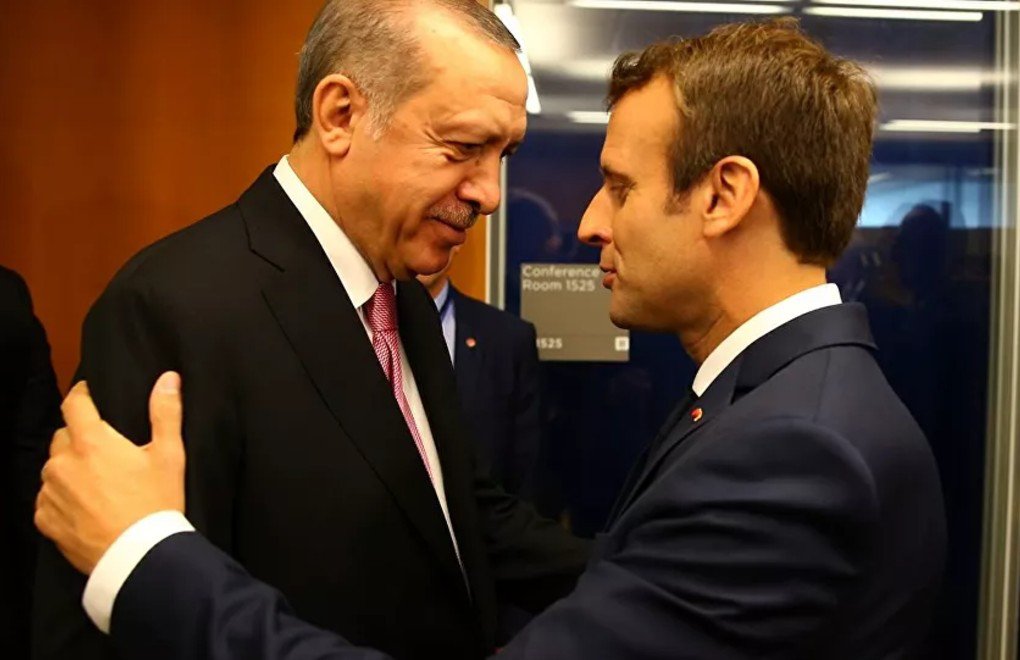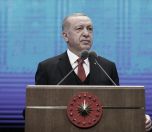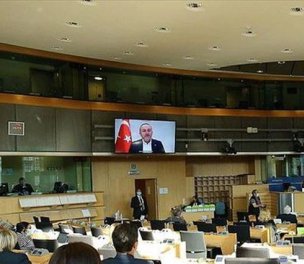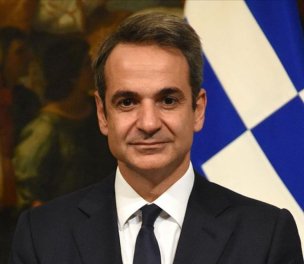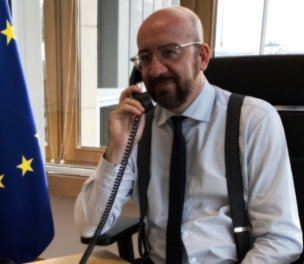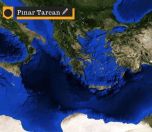Photo: AA/File
Click to read the article in Turkish
The Ministry of Foreign Affairs has condemned President Emmanuel Macron of France over his "arrogant" remarks made with "colonial reflexes."
Macron's statement endangers EU interests with his "individual and nationalistic stance," according to the Ministry.
Ahead of the summit of EU Mediterranean states in Corsisa island earlier today (September 10), Macron reportedly said, "We must be tough with the Turkish government and not with the Turkish people, who deserve more than the Erdoğan government."
He also said that Turkey was not "acting like a NATO ally in the Eastern Mediterranean," referring to the dispute between Ankara and Atina.
Macron's statement seeks "to give lessons by speaking pedantically with his old colonial reflexes," the ministry asserted.
"Our president has always drawn his power from the Turkish people. The Turkish people and the government have always had one heart in the face of such delusions and will continue to do so," the statement added.
Turkey calls on France to "take a stand in favor of reconciliation and dialogue," instead of "blindly acting as advocates of Greece and the Greek Cypriots, who take unilateral and provocative steps and take the EU hostage for their narrow-minded interests," the statement added.
"This is a requirement of our Europeanness and our NATO Alliance," the ministry said, referring to Turkey and France both being members of NATO.
Regional tensions have recently escalated over the issue of energy exploration in the Eastern Mediterranean.
Greece has disputed Turkey's energy exploration in the Eastern Mediterranean, which it started in July in accordance with a maritime delimitation agreement Ankara signed with Libya's Government of National Accord (GNA).
Timeline of the Eastern Mediterranean crisisThe tension between Turkey and Greece over their right to explore energy resources in the Eastern Mediterranean has seriously escalated over the last months. The latest developments leading to this escalation are briefly as follows: On July 21, Turkey issued its first Navtex alert for Oruç Reis seismic vessel's exploration activities in the Eastern Mediterranean. On July 28, Turkey announced after Germany's diplomatic efforts that it suspended hydrocarbon exploration activities and stated that it was ready to talk with Greece. On August 6, Greece and Egypt signed a maritime border agreement. On August 10, Turkey announced that its drillship Oruç Reis would resume energy exploration in the Eastern Mediterranean. It said the ship will continue its work along with the ships Cengiz Han and Ataman until August 23. On August 14, the EU foreign miniters discussed the crisis at an extraordinary meeting, calling on Turkey to end hydrocarbon exploration activities in contested waters. On August 16, Turkey issued a Navtex, announcing that its drill ship Yavuz will continue its work exploring for energy resources off the island of Cyprus. On August 23, Turkey issued another Navtex, stating that the Oruç Reis vessel would continue its activities until August 27. On August 24, Greece held joint naval drills with the US in the south of Crete island. One day later, Turkey conducted naval exercises with Italy. On August 25, Germany's Minister of Foreign Affairs Heiko Maas visited Athens and Ankara to encourage the two countires to have direct talks. On the same day, Turkey held replenishment exercises with Italy in the Eastern Mediterranean. On August 26, US President Donald Trump had phone talks with President Recep Tayyip Erdoğan and Prime Minister of Greece Kyriakos Mitsotakis, urging them to reduce tensions and start dialogue. On the same day, Turkey and the US conducted joint maritime exercises. On August 27 and 28, EU foreign ministers met with the Eastern Mediterranean crisis on the top of their agenda. The Union's foreign polict head Josep Borrell said after the meeting that Turkey's ships might be sanctioned if they continued hydrocarbon activities. Turkey's Ministry of National Defense on August 28 announced that it intercepted six F-16 fighters planes of Greece, which it said were closing in on the area where Turkey issued a Navtex. On September 1, the US lifted the arms embargo on Southern Cyprus. On September 2, Turkey issued two Navtex alerts for Russia's gunnery exercises in the Eastern Mediterranean. It was stated that Russia would conduct exercises in two different areas that correspond to Turkey's hydrocarbon exploration activities on the east and west of the Cyprus island. On September 3, NATO Secretary General Jens Stoltenberg said, "Following my discussions with Greek and Turkish leaders, the two Allies have agreed to enter into technical talks at NATO to establish mechanisms for military deconfliction to reduce the risk of incidents and accidents." On September 4, Prime Minister of Greece Kyriakos Mitsotakis said that Greece would only enter into a dialogue with Turkey if it "stops provocation" in the Eastern Mediterranean. Shortly before this statement, Turkey's Foreign Ministry stated, "Turkey is ready to enter into dialogue with Greece without any preconditions, in order to find lasting, fair and equitable solutions to all outstanding issues between Turkey and Greece." On September 8, the state-run Anadolu Agency (AA) reported that the meeting between military delegations from Turkey and Greece was rescheduled for September 10. |
(PT/VK)




